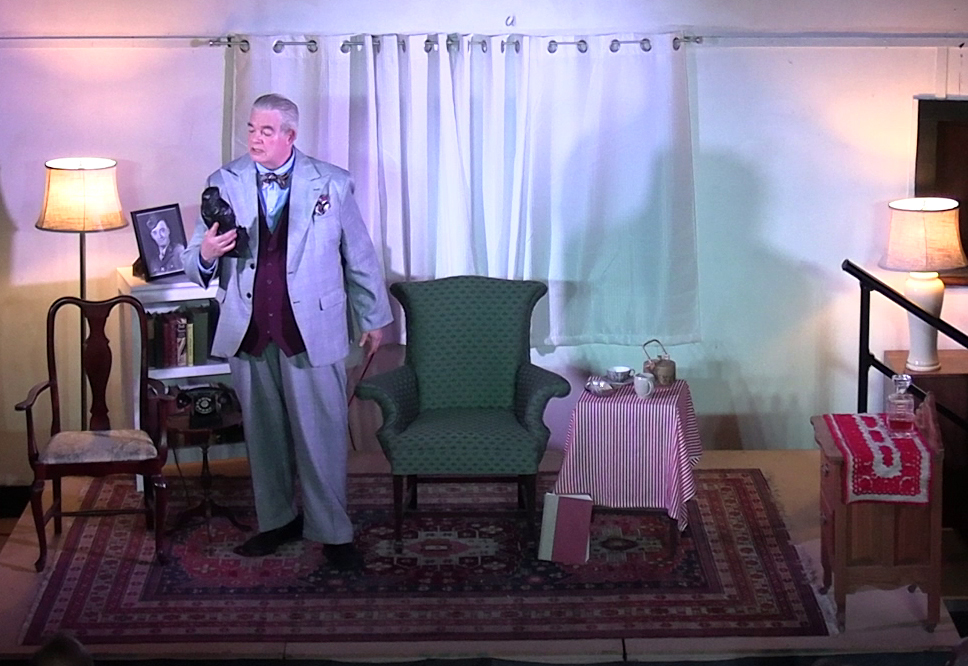Even though the Long Intermission is finally over (or we’ve just decided to go on with our lives after three years of hiding behind masks and plexiglass), I rarely consider opportunities for enjoyment outside my home. Every “fun” thing that beckons offers the promise of disappointment and the guarantee of expense. The pleasure of dining out is practically nil. With certain notable exceptions, the food is worse, the service is abysmal, and the cost has increased. The local Chinese buffet, once a place to regale oneself delightfully and inexpensively, now provides flexible plastic forks to diners. The graciousness (what there was of it) has quite gone out of our social life. One might as well stay home.
But I honestly don’t want to be a killjoy, especially when my own joy is at stake. What is this “fun” of which you speak? Therefore, on occasion I will struggle with my dread and take a chance on an experience which may distract me from my awful self for a while.
On July 8, my wife and I drove down to Tannersville, NY, to see a performance by the remarkable Cécile McLorin Salvant. We had last seen her perform in Princeton, New Jersey, on Father’s Day 2016. I wrote a rave review for my July 2016 issue:
June 19 was Father’s Day this year, and we noted a definite subtext almost immediately. The first selection was “Wild Women Never Get the Blues,” with its recommendation of kicking men to the curb if they don’t behave. This was no fluke. As the ninety-minute concert progressed, the audience was treated to the Opposing View: the pain of love, the sorrow of loss, the delight of revenge, the gray tedium of loveless marriage, the crippling restrictions of socially-defined gender roles, and the bitterness of betrayal.
And it was a treat, all of it. Salvant’s setlist in itself was a work of polemical art, and her performance of the material was supreme art … Salvant expresses more rage with a whisper than a heavy metal band with a stack of cranked-up amplifiers.
If anything, Cécile is even more angry now than she was seven years ago. She is still magnificent—her vocal instrument is the finest I’ve ever heard and she deploys it virtuosically. But her magnificence is scathing. Her fans in the packed Orpheum Performing Arts Center did not come for crooning. She sang the first three songs in French (to a non-Francophone audience) and then her own “Obligation,” with exponentially more fury than on her Ghost Song CD. “Obligation / Promises lead to expectations / Which lead to resentment.” She followed with Kurt Weill’s “Pirate Jenny,” singing her own adaptation of the Marc Blitzstein translation. Her anger here was quieter—yet somehow more gloriously ghastly than the Lotte Lenya recording.
I was certainly distracted from myself. It is the measure of a great artist to be able to transport an audience—even as a scourge. Enjoyment isn’t always the point. Magnificence does not pander. Even if you are uncomfortable, you will be moved. At the end of the evening, those in attendance were on their feet, cheering.

Written and performed by Byron Nilsson; directed by David Baecker
A week later I ventured out again to see the debut performance of The Fat Man, a one-man play about actor Sydney Greenstreet, written and acted by a contributor to this paper, Byron Nilsson. In this instance I was not distracted from myself, but for the pardonable reason that Nilsson’s fine writing and excellent portrayal made me feel deep empathy for his subject. This was close to home for me: advancing age, intractable weight, and the frantic sense that one’s better days are likely in the past. I identified profoundly with the insults and indignities suffered over a lifetime, the sense that one is somehow “less than” based on one’s appearance, and taking that judgment and inflicting it on oneself.
Self-loathing conquers all.
Sydney Greenstreet was an accomplished Shakepearean actor who learned the Bard by heart, but who played butlers on Broadway and “heavies” (how that word stings!) on the screen. Byron Nilsson embodied Greenstreet, spinning amusing theatrical and film stories, with a palpable undercurrent of his frustration and heartbreak. Though I did not forget myself for one minute, I felt a catharsis here, also.
Perhaps we are not supposed to feel comfortable in this world, or even in our own skins. Comfort is not the same as facing reality and making peace with oneself. Comfort is at best a temporary respite from strife. It may be necessary to replenish one’s energy so that one can emerge once more to grapple with reality. Naps can be most refreshing; comas are not.
Great art challenges us and offers us occasionally disquieting experiences. At times, I’ve wondered whether I was missing something—whether I was worthy of what was presented to me. I now understand that the discomfort is part of the process of appreciation. Ideally, those moments of disquiet lead to insight and healing. At the very least, art should make us feel we are alive.
I have to say here that Cécile McLorin Salvant’s performance and Byron Nilsson’s play did make me feel alive—and fully conscious of my finite and flawed humanity. There is also something in the immediacy and intimacy of live performance itself that brings us back into gracious contact with each other. If one has a penchant for reclusion, it is psychologically needful to hoist oneself out of one’s easy chair to attend a concert or show.
And, with film and TV actors and writers on prolonged strike, this is actually the perfect time to do so!
Andy Senior is the Publisher of The Syncopated Times and on occasion he still gets out a Radiola! podcast for our listening pleasure.






















